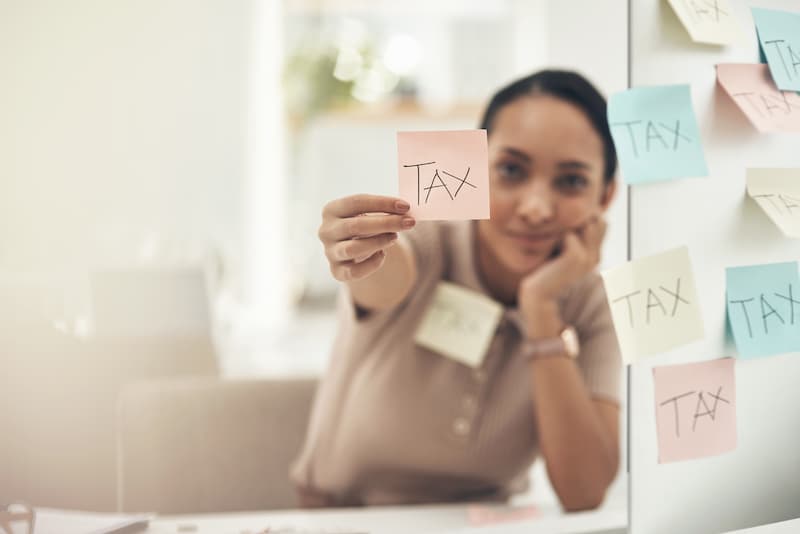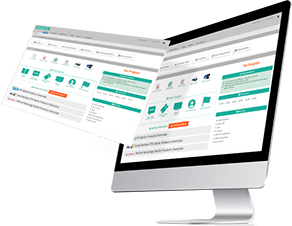After years of crunching numbers, advising businesses, and ensuring compliance, you’re looking ahead to a new chapter: retirement. But, like many CPAs, stepping away completely feels like too big of a leap. What if there were a way to ease into retirement while still putting your expertise to use on your own terms?
That’s where transitioning to tax preparation comes in. It lets you stay active in the field, maintain a steady income, and enjoy the flexibility retirement should bring. The best part? Your CPA background gives you a strong foundation for this work.
If you’re considering this transition, you’re in the right place. Let’s explore why tax preparation makes sense for retiring CPAs and how to make the switch successfully.
Why Tax Preparation Makes Sense for Retiring CPAs
Retirement doesn’t have to mean shelving your expertise. As a tax preparer, you can keep using your skills on your own terms. Here’s why many CPAs choose this path:
Control Your Time
After decades of client deadlines and constant demands, tax preparation gives you breathing room. The concentrated work period from January to April means you have eight months to spend exactly as you choose. Take that extended vacation. Visit the grandkids. Golf when you want. Your expertise works for you now, not the other way around.
Minimize Overhead
No more office leases or staff management. Today’s tax preparation can run efficiently from anywhere. A professional tax software subscription and a laptop are your main investments—work from your home office, a shared space, or wherever you prefer to spend your time.
Predictable Income Without Year-Round Pressure
Step away from complex audits and constant advisory demands while maintaining meaningful income. Tax preparation focuses your expertise where it matters most, without the perpetual stress of full CPA services.
Leverage Your Experience
Your CPA background sets you apart. Small business owners value your depth of knowledge. Retirees trust your understanding of their situations. Freelancers benefit from your business insights. You’re offering expertise that basic tax preparers simply can’t match.
Release the Licensing Burden
Let go of the constant CE requirements and licensing fees. As a tax preparer, you stay connected to finance without the demanding obligations of CPA maintenance. Keep current with tax laws on your terms, free from broader licensing requirements.
How to Transition From CPA to Tax Preparer in 4 Steps
So, how do you shift from a CPA role into tax preparation? It’s simpler than you might think.
Step 1: Get Registered as a Tax Preparer
While CPAs are exempt from needing additional credentials to prepare taxes, you will need an active Preparer Tax Identification Number (PTIN) from the IRS. You can apply or renew your PTIN online through the IRS website in just a few minutes.
If you plan to represent clients before the IRS beyond tax return filing—such as in audits or appeals—you may also want to consider obtaining an Enrolled Agent (EA) credential, which has fewer requirements than maintaining a CPA license.
Step 2: Choose the Right Tax Software
Remember all those tax returns you used to check by hand? Now, the right software makes everything easier. You’ll want professional-grade tax software that handles the heavy lifting.
Look for these must-have features:
- Cloud-based access so you can work from anywhere—home office, vacation home, or wherever you prefer.
- Unlimited e-filing for both federal and state returns (no counting returns or extra fees).
- Built-in compliance updates that keep you current with tax law changes.
- A secure client portal where they can easily share documents with you.
The technology has come a long way since paper returns. Good software lets you spend time on analysis and advice instead of data entry and double-checking math.
Step 3: Decide on Your Business Model
After years of firm life, you finally get to choose exactly how you want to work. Here’s what most retiring CPAs consider:
- Freelance Tax Preparation—Work from home, at a coffee shop, or wherever you like. Take the clients you want when you want them.
- Join an Existing Firm—Some tax firms love having experienced CPAs during tax season. You get their infrastructure; they get your expertise.
- Virtual Tax Services—Use secure cloud-based professional tax software to serve clients anywhere. No office is needed, and you can even work while traveling.
Before you start, nail down your pricing. Whether you charge per return, by the hour, or based on complexity, set rates that reflect your CPA experience.
Step 4: Market Your Services
Even though you may have decades of experience as a CPA, tax preparation clients won’t automatically come knocking unless they know about your new services. Start by:
- Tapping into Your Existing Network—Let past clients and professional contacts know that you’re now offering tax preparation services.
- Setting Up a Website—A simple website with your services, pricing, and contact information makes it easy for potential clients to find you.
- Utilizing Social Media and Online Listings—Platforms like LinkedIn, Facebook, and Google Business Profile help you connect with local clients.
- Partnering with Small Businesses and Financial Advisors—Build relationships with local professionals who can refer clients to you.
Maximizing Success as a Retired CPA-Turned-Tax Preparer
To make the most of your new role, keep these best practices in mind:
Stay Updated on Tax Law Changes
Tax laws still change, but now you only need to focus on what affects your clients. An hour a week reading IRS updates keeps you sharp without the full CPA workload.
Use Time-Saving Technology
You remember the days of paper returns. Now, let technology handle the routine work. Good software means you can focus on advising clients, not pushing papers.
Set Boundaries for Work-Life Balance
This is your chance to work differently. Want Fridays off? Take them. Need two weeks in March to see the grandkids? Plan for it. You get to decide what “busy season” means now.
Consider Specializing
You’ve gained specific expertise over your career. Maybe it’s small business taxes or real estate. Use that knowledge to attract clients who value your background.
Plan for Off-Season Income
Tax season can pay well, but some retired CPAs like to stay busy year-round. Consider offering tax planning sessions or advisory work when you want to work.
The best part? You get to choose how much or how little of this advice to follow. This is your retirement, after all.
Your Experience, Your Terms
You’ve spent years mastering the complexities of accounting. Now it’s time for a chapter that puts all that knowledge to work in a way that fits your life. Tax preparation lets you keep doing what you’re good at without the constant demands of full CPA work.
The path forward is clear and manageable. Get your PTIN, choose the ultimate tax software, and decide how you want to work. The best part? You can shape this role to match your retirement dreams—whether that’s working just during tax season or keeping busy year-round with select clients.






